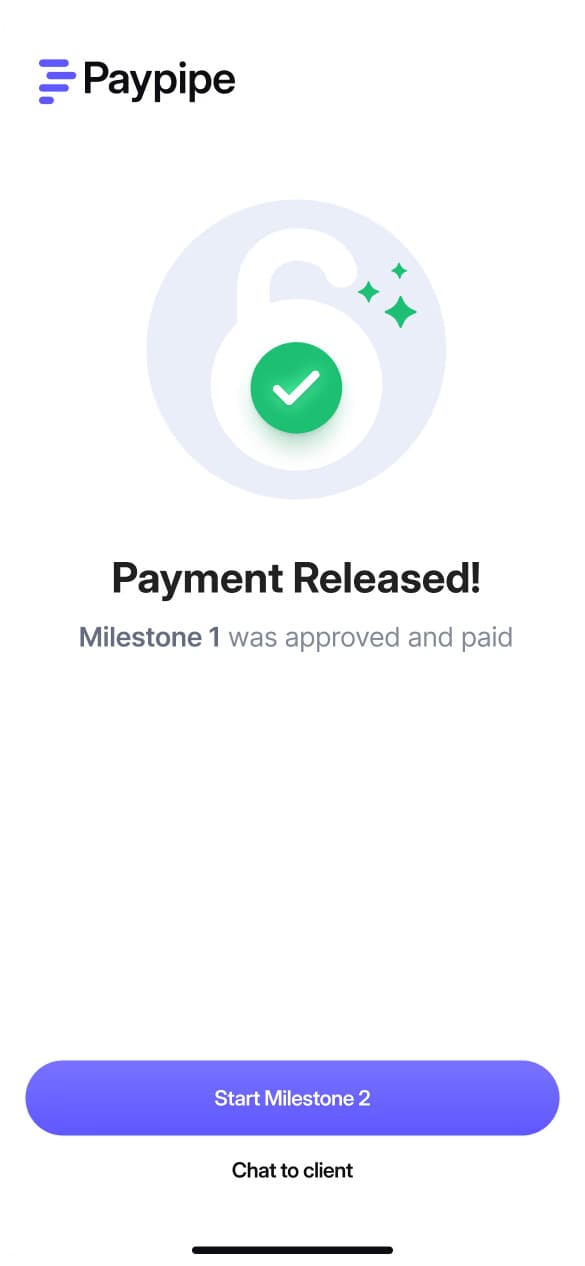Dealing with Delays: Managing the Impact of Slow Payments for Freelancers
Dealing with Delays: Managing the Impact of Slow Payments for Freelancers
Learn effective strategies to manage the impact of slow payments with secure payments, freelancer tools, and optimized payment processing. Discover how platforms like Paypipe can help ensure swift and hassle-free transactions.
In the dynamic world of freelancing, managing finances efficiently is as important as it is stressful. One of the most significant challenges freelancers face is dealing with slow, time consuming payments. This delay can not only disrupt cash flow for freelancers, but also affect any financial plans you have in place, as well as creating unnecessary stress and anxiety. I can’t speak for everyone, but I think I’ve seen more than my fair share of both after working 7 years as a freelance professional. I’ve learned quite a few tricks over the years, so with that in mind, let’s explore some expert tips to getting paid securely as a freelancer –
Understanding the Impact of Slow Payments
Slow payments can lead to several issues:
Cash Flow Issues:Regular cash flow is essential for managing day-to-day expenses. Delays can lead to shortfalls and financial strain.
Lost Opportunities:Withholding payments can prevent freelancers from investing in new opportunities or upgrading their tools and skills.
–Psychological Stress:Constantly chasing payments can lead to anxiety, a decrease in productivity, and a pretty bad mood if it isn’t resolved quickly enough.
Strategies to Mitigate the Impact
1. Implement Secure Payment Methods
Ensuring that your payment processing methods are secure and always kept up-to-date can significantly reduce delays and disputes. It definitely wouldn’t hurt to start implementing a few of the following in your daily activities as well:
– Use Trusted Platforms: Platforms like Paypipe offer secure and efficient payment solutions, minimizing the risk of fraud and ensuring timely transactions. It should go without saying, but please try to avoid using 3rd party products you’re not familiar with, otherwise you may end up with a non-existent payment, rather than dealing with just a slow one.
– Client Verification: Verify your clients before starting a project. This can include checking their business credentials and previous reviews, or maybe doing a little digging into their Yelp or Glassdoor profiles, just to make sure they are who they say they are, and not another bad actor in disguise.
– Contractual Agreements: Take your time and clearly outline your payment terms in a contract. This should include the payment schedule, methods of receiving payment, and penalties for late payments. Include whatever you can think of that might benefit you if things take a turn for the worse.
“Prepare for the worst, but hope for the best. Don’t be the rain, be the guy with the umbrella.”
I know it sounds like quite a bit of work, but staying safe when it comes to your freelancing career can be a little bit tricky from time to time. Always remember to be as thorough and detailed as possible when creating your new work agreements, as they may be one of the only protections you have in place if the client decides to skip out on payment.
2. Utilize Effective Freelancer Tools
There are tons of different freelancer tools that can streamline your operations and help manage payments more efficiently, such as:
– Invoicing Software: Tools like Stripe or Quickbooks offer real-time payment tracking and automated invoicing, ensuring that clients are reminded of due payments promptly.
– Time Tracking: Use tools that integrate with your invoicing software to provide detailed timesheets. Most modern time trackers also come equipped with desktop recording capabilities, which allows you to settle disputes easier thanks to offering complete transparency in your work.
– Communication Platforms: Keep all job details, updates, and payment statuses in one place. Freelancers meet a lot of new people during their career, so don’t expect to remember the email address of every single person you come across. Instead, you should try and keep the conversation on one platform and easy to review, that way you won’t have to rely so much on memory.
3. Optimize Your Payment Processing
Always do your best to come prepared ahead of time, that way you can deal with issues as they arise, rather than being left scratching your head wondering what you should do next. Here’s a few more pro tips:
– Multi-Currency Accounts: Use platforms that support multi-currency accounts. Paypipe allows freelancers to hold and manage funds in multiple currencies, reducing the need for frequent conversions.
– Detailed Invoicing: Send detailed and prompt invoices as soon as the work is done. Ensure they are easy to understand, including all necessary information such as contact details, a breakdown of services, the amount due, and payment deadlines.
– Payment Tracking: Regularly monitor your payments. Most of us are walking around every day with at least one phone in our pockets. Why not put it to good use and keep an eye on when and where those payments might arrive?
Additional Tips for Managing Slow Payments
– Detailed Records: The more descriptive you can be in your records, the better off you’ll be if something happens. Keep thorough records of all communications, contracts, invoices, and payments. These records are invaluable if a dispute arises.
– Prompt Follow-Ups: Set reminders to follow up on overdue payments. Be polite but firm in your communication to ensure clients understand the importance of timely payments. Always remember to be respectful and courteous, the mark of a true professional.
– Offer Multiple Payment Options: Provide clients with various payment options, such as bank transfers, credit cards, or online payment platforms. This flexibility can speed up the payment process.
It may not be the most entertaining part of being a freelancer, but coming up with effective and mutually beneficial ways to collect your hard earned money has always been, and will always be one of the most crucial aspects of being a self employed professional.
Dealing with delays in payments is an inevitable part of the freelance lifestyle. However, by weaving a few of the techniques we’ve listed above into your daily activities you can mitigate the impact of these delays and hopefully alleviate some of the stress that comes with remote working. Unfortunately, these methods don’t come with any sort of guarantees, so even though it may work for some, others may not be so lucky. Or, you could skip all the hassle entirely and create an offer on Paypipe, getting rid of all the headaches listed above in the process. With all of its built-in security features, ease of use, and the peace of mind that comes with it,you can finally get rid of some of the anxiety that comes hand-in-hand with freelancing and get back to doing what you do best.

Protecting Your Earnings: How Smarter Payment Processes Reduce Scam Risks
In the digital age, the convenience of working online comes with its own set of challenges. Among the most serious? Scams that target contractors and freelancers by exploiting weaknesses in payment processes. The good news is that these risks can be reduced often by making a few smart adjustments to how you handle offers, approvals, […]

How to Protect Yourself from Payment Scams as a Contractor or Freelancer
The Reality of Payment Scams in Contract Work If you’ve been freelancing or contracting for any length of time, you’ve probably heard of or even experienced a payment situation that didn’t feel right. One common story? A new contractor lands a dream client who pays a large sum upfront. Soon after, the payment platform flags […]

Breaking the Late Payment Cycle: Practical Strategies for Small Businesses
Late payments are one of the biggest challenges small businesses face. They disrupt cash flow, strain client relationships, and create unnecessary stress. If you’ve ever waited weeks or even months for an invoice to be paid, you know how frustrating it can be. The good news? You can take proactive steps to reduce delays and […]

Future-Proofing Your Business: Why Smarter Payment Processes Pay Off Long-Term
In business, the way you get paid isn’t just an operational detail, it’s a foundation for stability, growth, and long-term success. While many small businesses focus heavily on improving their products or services, the systems that handle payments are often left unchanged for years. That’s a missed opportunity. The reality? Client expectations are shifting faster […]

The Future of Payments: Trends Shaping How Businesses Get Paid Worldwide
Did you know that in some countries, payments now clear in under 5 seconds? Payment technology is evolving faster than ever and it’s completely changing the way businesses get paid. For small business owners, contractors, and service providers, understanding these payment trends isn’t just a matter of keeping up with technology. It’s about preparing for […]

How to Prevent Payment Delays in Service-Based Work: Practical Tips for Faster Project Completion
For many service-based businesses whether you’re a tradie, creative professional, consultant, or contractor payment delays can be more than an inconvenience. They can disrupt cash flow, slow down project delivery, and damage client relationships. The good news is, there are practical, straightforward strategies you can use to prevent these delays, keep projects moving, and maintain […]

How Contractors & Home Services Providers Use Paypipe.io to Impress Clients and Keep Them Coming Back
In the world of contracting and home services, your reputation is everything. Clients are not only looking for quality work they’re looking for clear communication, reliable timelines, and hassle-free payments. The more seamless the experience, the more likely they are to hire you again and recommend you to friends, family, or neighbours. That’s where Paypipe.io […]

How Small Businesses Can Use Paypipe.io to Manage Offers, Track Payments, and Stay on Top of Everything
Running a small business can feel like a juggling act. You’re managing client relationships, organising schedules, sending offers, following up with customers and somehow still trying to get paid on time. The challenge isn’t just about keeping the business afloat; it’s about staying organised without spending your entire day chasing paperwork or overdue invoices. That’s […]

How AI Helps New Freelancers Save Time and Stress Drafting Offers and Contracts
You’ve landed your first freelance client. The hard part finding someone who believes in your skills is done. You’re excited to get started, but then comes the email: “Could you send me your offer and contract to review?” This is where many freelancers freeze. What should you write? What terms need to be there? What […]

Why Freelancers Should Never Chase Payments Again
You sent the invoice two weeks ago. Nothing. You follow up politely. Still nothing. The rent is due, the bills are piling up, and the client is nowhere to be found. This is not rare. A 2023 study by the Independent Contractors Association found that nearly three out of four freelancers in Australia have experienced […]

Why Contractors & Home Service Pros Should Showcase Their Work Online
Being a contractor or home service professional in Australia means competing in a busy, competitive market. Whether you’re a builder, plumber, electrician, painter, landscaper, or handyman, the challenge is the same: proving to potential clients that you can be trusted to deliver good work. And in today’s digital-first world, word-of-mouth alone is no longer enough. […]

Why SMBs Should Build a Public Page Clients Can Actually Trust
Running a small or medium-sized business (SMB) in Australia has never been easy, and in today’s digital-first economy, it comes with even more challenges. One of the biggest issues facing SMBs is credibility. Clients are more cautious than ever about who they work with, and in many industries, they have no shortage of options. In […]

Why Your Portfolio Should Do More Than Look Pretty
By Queen Valbuena For many freelancers, their portfolio is their pride and joy, showcasing beautiful designs, clever copy, or impressive projects. But here’s the problem: most portfolios stop at admiration. They don’t move clients to take action. In today’s competitive market, simply impressing visitors is no longer enough. You need your portfolio to guide potential […]

Why Freelancers Need More Than Social Media: Build a Portfolio That Wins Clients
By Queen Valbuena, digital marketing consultant Queen helps freelancers and creatives build professional online presences and attract better clients. By moving her portfolio from Instagram to Paypipe.me, she increased her proposal acceptance rate by 42% in three months. Why Professionalism Matters More Than Ever Freelancing today is as much about trust as it is about […]

Making Invoicing Easier for Freelancers
Discover how freelancers can simplify their invoicing process with automation and efficiency tips. Learn to streamline payments, leverage AI, and utilize cloud-based solutions for better cash flow and time management.

Tools and Techniques for Efficient Project Management
Discover essential project management tools and techniques for freelancers. Learn how to boost productivity, streamline workflows, and deliver exceptional results with Paypipe and other key resources.

AI Tools to Help Freelancers Run and Grow Their Business
Discover the top AI tools helping freelancers boost productivity and grow their business in 2024. From project management to financial tools, learn how to leverage AI for success.

Integrating Advanced Payment Systems for Freelancers
Discover how integrating advanced payment systems can streamline financial operations, reduce costs, and enhance security for freelancers. Learn about the benefits of seamless technology integration and how platforms like Paypipe are revolutionizing the freelance economy.

Cutting Costs: How Freelancers Can Reduce Payment Fees with Paypipe
Discover how freelancers can reduce payment fees with effective strategies and the help of Paypipe’s low fees and freemium model. Learn how to save more and simplify your payment process in 2024.

Best Practices for Freelancers to Secure Their Earnings
Discover essential tips for freelancers to protect their earnings, ensure timely payments, and avoid common pitfalls. Learn how tools like Paypipe can streamline and secure your freelance transactions.

The Future of Payment Security and The Rise of Cryptocurrency
Discover why cryptocurrency is transforming the future of digital payments. Learn about the benefits of crypto transactions—speed, security, and global accessibility—and how Paypipe is staying ahead by enabling seamless, escrow-backed crypto payments with Zero Dispute Liability.

Expanding Payment Horizons: Paypipe Launches in Pakistan
Paypipe launches in Pakistan, offering freelancers and small businesses secure payment processing, professional tools, and global reach. Discover how Pakistani professionals can streamline their independent work with comprehensive project management and payment solutions.

Using Performance Marketing for Measurable Success as a Freelancer
Unlock the power of performance marketing as a freelancer. Learn actionable digital strategies to boost your ROI and measure your success. Perfect for ambitious freelancers ready to level up their marketing game.

High-End Marketing: How to Attract High-Value Customers
Learn the secrets of luxury marketing and how to attract high-value consumers for your premium products. Discover strategies to position your brand and engage affluent customers.

Leveraging Social Media for Business Growth: Strategies for Freelancers and Small Businesses
Discover proven strategies to leverage social media marketing for growing your freelance or small business. Boost brand awareness and engagement with our expert tips.

Top Channels for Growth Marketing: Driving Business Expansion
Discover the top channels for growth marketing as a freelancer or small business owner. From social media advertising to referral programs, learn proven strategies to drive measurable business expansion and streamline your finances with Paypipe.

Mastering the Art of Client Acquisition: Proven Strategies for Freelancers
Discover proven client acquisition and marketing strategies to grow your freelance business. Learn how to attract high-quality clients and boost your income.

Effective Networking Strategies for Freelancers
Network like a pro: Strategies to build valuable connections and secure more gigs

Using Digital Marketing to Grow Your Freelance Business
Discover how freelancers can leverage digital marketing strategies like SEO, social media, content marketing, and paid advertising to attract more clients, increase revenue, and build a thriving business. Learn tips for optimizing your online presence and simplifying payments with Paypipe.

Streamlining Your Freelance Operations: A Guide to Operational Efficiency
Discover key strategies for streamlining your freelance operations and boosting business efficiency. Learn how to leverage technology, manage projects effectively, and optimize your workflow for greater productivity and profitability.

Tools and Techniques for Efficient Project Management
Discover essential project management tools and techniques for freelancers. Learn how to boost productivity, streamline workflows, and deliver exceptional results with Paypipe and other key resources.

The Best Time Management Tools for Freelancers
Discover the top time management tools for freelancers. Learn how Trello, RescueTime, and Toggl can boost your productivity and efficiency. Plus, see how Paypipe complements these tools for freelancing success.

5 Tips for Stronger Cash Flow as a Freelancer
Discover 5 essential tips for freelancers to boost cash flow using smart payment platforms, robust invoicing systems, real-time tracking, streamlined communication, and multi-currency strategies. Learn how Paypipe can help optimize your freelance finances

Tax Talk: Mastering the Art of Handling Taxes in Freelance Payments
Master the art of handling taxes as a freelancer with our comprehensive guide. Learn about online payment taxes, quarterly payments, and essential tips to stay organized and financially savvy.

Dealing with Delays: Managing the Impact of Slow Payments for Freelancers
Learn effective strategies to manage the impact of slow payments with secure payments, freelancer tools, and optimized payment processing. Discover how platforms like Paypipe can help ensure swift and hassle-free transactions.